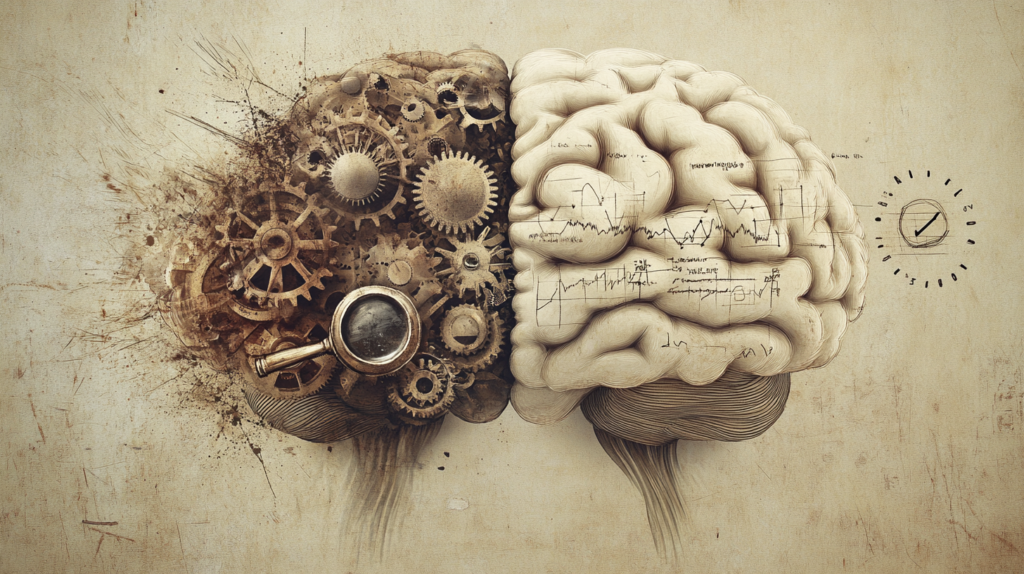Attention to Detail: Essential Skill for Success You Must Know

Attention to detail is a critical skill that plays a pivotal role in achieving professional and personal success. It involves noticing the finer aspects of any task, ensuring accuracy, and striving for perfection. In today’s fast-paced world, the ability to maintain high standards in work can set you apart from the competition, making it an invaluable asset in any field. This article delves into the importance of attention to detail, how to develop this skill, and its impact on various aspects of work and life.
Table of Contents
- Why Attention to Detail Matters
- Developing Detail-Oriented Skills
- Impact of Attention to Detail on Quality
- Precision in Work and Careful Observation
- Enhancing Accuracy Focus
- Meticulousness and Perfectionism
- Role of Attention to Detail in Organizational Skills
- Deskcove: A Solution for Detail-Oriented Professionals
- FAQs About Attention to Detail
Why Attention to Detail Matters
Attention to detail is often the difference between good work and great work. It involves focusing on the small, intricate parts of a task that others might overlook, which can significantly impact the overall outcome. This skill is essential in various professions, from project management to creative fields, where minor mistakes can lead to substantial setbacks.
The Importance of Detail-Oriented Skills in Professional Settings
Having detail-oriented skills allows professionals to maintain a high standard of quality in their work. It ensures that every aspect of a project is carefully considered, leading to better outcomes and higher customer satisfaction. For instance, in industries like finance and healthcare, where precision is critical, attention to detail is non-negotiable.
How Attention to Detail Can Improve Personal Productivity
Attention to detail isn’t just important for professional success; it also plays a crucial role in personal productivity. By focusing on the small aspects of your tasks, you can minimize mistakes, save time, and improve efficiency. This not only makes your work more accurate but also boosts your overall productivity.
Developing Detail-Oriented Skills
Becoming detail-oriented requires practice and a conscious effort to observe, analyze, and correct small errors. While some people naturally have an eye for detail, others can develop this ability through consistent practice and mindfulness.
Building Meticulousness Through Practice
Meticulousness is a trait that can be cultivated over time by paying close attention to everyday tasks. Start by focusing on small tasks like careful proofreading, double-checking work, and organizing your workspace. These activities can help build a habit of thoroughness that extends to larger projects.
Techniques to Improve Precision in Work
Techniques such as checklist creation, time-blocking, and the use of quality control tools can enhance precision in work. Implementing these strategies helps ensure that every step of a process is accounted for, reducing the likelihood of errors and improving the overall accuracy of your work.
Impact of Attention to Detail on Quality
Attention to detail directly affects the quality of output in any field. Whether you’re designing a product, writing content, or managing a team, paying close attention to every element ensures that the final result is polished and professional.
How Quality Control Relies on Attention to Detail
Quality control is an integral part of many industries, and it relies heavily on attention to detail. Spotting small errors or inconsistencies before a product or service reaches the customer can save a company time and money, while also maintaining customer satisfaction and loyalty.
Examples of High Standards in Work
Companies that prioritize attention to detail often outperform their competitors. For example, luxury brands known for their craftsmanship and precision thrive because of their unwavering commitment to quality. This same principle can be applied in any profession to achieve exceptional results.
Precision in Work and Careful Observation
Precision and careful observation go hand-in-hand when it comes to attention to detail. This combination ensures that tasks are completed accurately and efficiently, which is particularly important in fields that require a high degree of accuracy.
The Role of Keen Observation Skills
Keen observation skills allow professionals to notice subtle differences that others might miss. This can be particularly useful in fields like design, quality assurance, and research, where small variations can have significant implications on outcomes.
Developing an Analytical Mindset
An analytical mindset is crucial for identifying potential errors and areas for improvement. By consistently evaluating your work and questioning the status quo, you can ensure that your attention to detail remains sharp, leading to continuous growth and better results.
Enhancing Accuracy Focus
Accuracy focus is the ability to maintain concentration on detailed tasks without losing sight of the bigger picture. This skill is essential for roles that require precision and accuracy, such as data analysis and technical writing.
Maintaining Focus in High-Pressure Situations
Maintaining accuracy in high-pressure situations is challenging but achievable with the right strategies. Break down tasks into smaller, manageable steps, and use tools like time trackers to ensure that each step is completed with precision.
Tools and Techniques for Error-Checking Abilities
Error-checking abilities can be enhanced using various tools and techniques. For example, software like spell-checkers, grammar tools, and project management apps can help identify mistakes and ensure consistency throughout your work.
Meticulousness and Perfectionism
While meticulousness and perfectionism often go hand-in-hand, it’s essential to strike a balance between striving for excellence and avoiding analysis paralysis. Being overly perfectionistic can sometimes hinder progress, but a healthy level of attention to detail ensures high-quality output.
Striking the Right Balance Between Quality and Efficiency
Balancing quality and efficiency is crucial for maintaining productivity. While it’s important to aim for a high standard, knowing when a task is “good enough” can prevent over-analysis and unnecessary delays.
Overcoming the Challenges of Perfectionism in Tasks
Perfectionism can lead to stress and burnout if not managed effectively. By setting realistic goals and focusing on progress rather than perfection, you can maintain a high level of meticulousness without compromising your well-being.
Role of Attention to Detail in Organizational Skills
Attention to detail plays a significant role in organizational skills, ensuring that tasks are completed systematically and efficiently. A well-organized approach leads to better time management and improved productivity.
How Attention to Detail Improves Organizational Efficiency
With a focus on attention to detail, individuals can organize their tasks in a way that minimizes errors and streamlines processes. This can involve creating detailed project plans, using calendars, and categorizing information systematically.
Developing a Systematic Approach to Task Management
A systematic approach involves breaking down complex tasks into smaller, more manageable steps. This method ensures that each aspect of a task receives the appropriate attention, ultimately leading to a more thorough and accurate completion.
Deskcove: A Solution for Detail-Oriented Professionals
Deskcove is designed for professionals who value precision and accuracy in their work. With a range of tools that support meticulous planning, quality control, and time management, Deskcove enables users to maintain a high standard in their work without sacrificing efficiency. Whether you’re managing projects or analyzing data, Deskcove’s user-friendly interface and robust features make it an ideal choice for those who pride themselves on their attention to detail.
FAQs About Attention to Detail
What is attention to detail?
Attention to detail is the ability to focus on the finer points of a task or project, ensuring accuracy and completeness. It involves careful observation and a commitment to maintaining high standards.
How can I improve my attention to detail?
Improving attention to detail requires practice and mindfulness. Start by focusing on small, everyday tasks, using checklists, and double-checking your work. Over time, these habits will help you become more detail-oriented.
Why is attention to detail important in the workplace?
In the workplace, attention to detail helps ensure that tasks are completed accurately and efficiently. It can prevent costly mistakes, improve the quality of work, and enhance overall productivity.
Can attention to detail be learned?
Yes, attention to detail can be learned and developed through consistent practice. By adopting habits like careful proofreading and systematic task management, anyone can become more detail-oriented.


